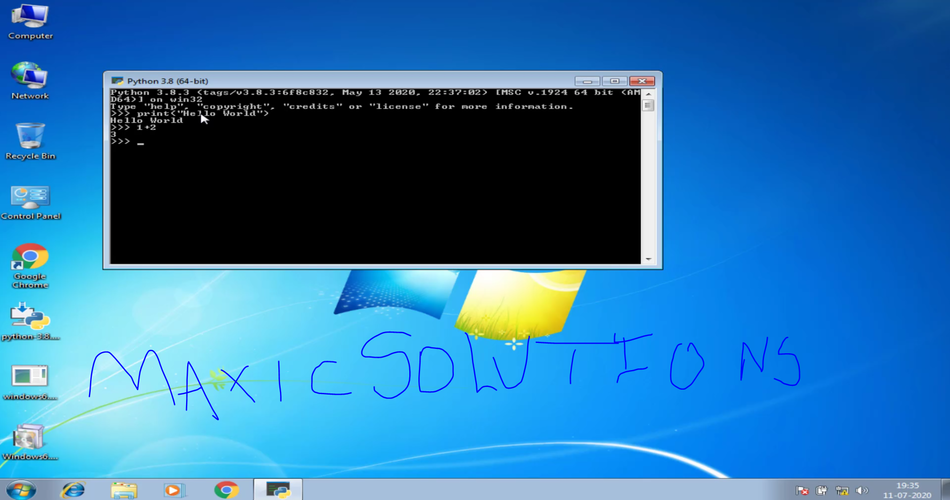Python Script Runner
- Python Script Runner Windows
- Python Script Runner Download
- Free Python Scripts
- Python Script Runner Android
Question or problem about Python programming:
Using this script as an example to learn Python debugging, we will see how we can start the debugger in detail. Within an interpreter. To start the debugger from the Python interactive console, we are using run or runeval. Start your python3 interactive console. Run the following command to start the console: $ python3. Ability to download, install and set up Python packages from actions/python-versions that do not come preinstalled on runners. Allows for pinning to a specific patch version of Python without the worry of it ever being removed or changed. Automatic setup and download of Python packages if. Write and run Python code using our online compiler (interpreter). You can use Python Shell like IDLE, and take inputs from the user in our Python compiler. Online Python IDE is a web-based tool powered by ACE code editor. This tool can be used to learn, build, run, test your python script. You can open the script from your local and continue to build using this IDE.
I have written a Python script that checks a certain e-mail address and passes new e-mails to an external program. How can I get this script to execute 24/7, such as turning it into daemon or service in Linux. Would I also need a loop that never ends in the program, or can it be done by just having the code re executed multiple times?
How to solve the problem:
Solution 1:
You have two options here.
Make a proper cron job that calls your script. Cron is a common name for a GNU/Linux daemon that periodically launches scripts according to a schedule you set. You add your script into a crontab or place a symlink to it into a special directory and the daemon handles the job of launching it in the background. You can read more at Wikipedia. There is a variety of different cron daemons, but your GNU/Linux system should have it already installed.
Use some kind of python approach (a library, for example) for your script to be able to daemonize itself. Yes, it will require a simple event loop (where your events are timer triggering, possibly, provided by sleep function).

I wouldn’t recommend you to choose 2., because you would be, in fact, repeating cron functionality. The Linux system paradigm is to let multiple simple tools interact and solve your problems. Unless there are additional reasons why you should make a daemon (in addition to trigger periodically), choose the other approach.
Also, if you use daemonize with a loop and a crash happens, no one will check the mail after that (as pointed out by Ivan Nevostruev in comments to this answer). While if the script is added as a cron job, it will just trigger again.
Solution 2:


Here’s a nice class that is taken from here:
Solution 3:
You should use the python-daemon library, it takes care of everything.
From PyPI: Library to implement a well-behaved Unix daemon process.
Solution 4:

You can use fork() to detach your script from the tty and have it continue to run, like so:
Of course you also need to implement an endless loop, like

Hope this get’s you started.
Python Script Runner Windows
Solution 5:
Python Script Runner Download
You can also make the python script run as a service using a shell script. First create a shell script to run the python script like this (scriptname arbitary name)
Free Python Scripts
now make a file in /etc/init.d/scriptname
Python Script Runner Android
Now you can start and stop your python script using the command /etc/init.d/scriptname start or stop.